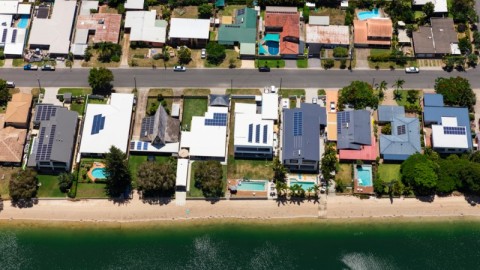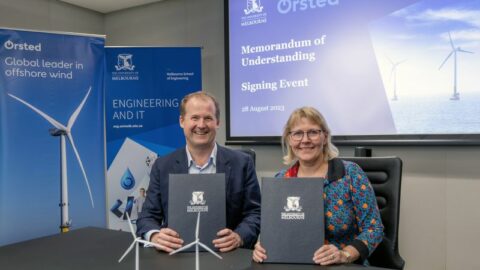The Federal Government’s announcement of measures to reform the Australian energy industry – in response to the Finkel Report – has been met with mixed reactions.
The measures announced by the government include:
- Finalise tough new regulations in the gas sector to give Australian customers priority access to gas supply before it is exported. This will commence on July 1
- Strengthen the Australian Energy Regulator by providing it with an additional $67.4 million to stop energy network companies gaming the system and overturning rulings in the courts
- Ask AEMO how to ensure that new continuous dispatchable power is provided, including what support is needed to promote new investment
A joint statement from Prime Minister, Malcolm Turnbull; Minister for the Environment and Energy, Josh Frydenberg; and Minister for Resources and Northern Australia, Matt Canavan, said, these measures put the needs of Australian families and businesses first, ensuring all Australians have access to reliable and affordable energy supplies.
“The finalisation of our tough gas regulations will increase supply to the domestic market, putting downward pressure on gas prices which have risen because of supply shortfalls,” the statement said.
“We simply cannot allow Australians to pay more for Australian gas than competitors overseas do.
“Restrictions will be placed on gas exporters when there are shortages in the domestic market.”
The Australian Government will also take immediate action to address escalating electricity prices.
“We will stop big electricity companies from running to the courts to try to overturn the Australian Energy Regulator’s decisions. Companies have made 52 appeals and the courts have ruled against consumers 31 times. This will end,” the statement said.
“To back this, we will strengthen the Regulator by providing it with an additional $67.4 million to ensure it is fully equipped to address behaviour in the market that is pushing up electricity prices.
“Baseload power anchors our electricity system. Continuous generation underpins our household and economic security. With a significant amount of baseload generation being phased out over the next 15 years, we need to ensure we are prepared and have enough power to meet future needs.”
The joint statement also asks the Australian Energy Market Operator (AEMO), to:
- Identify the existing and potential loss of continuous, dispatchable (baseload) generation
- Talk to suppliers and customers, particularly large-scale emissions intensive industrial users, about what they need to secure future investment
- Examine how much continuous power is needed in the short term to stabilise power prices
“On the back of the identified need, we will ask AEMO how best to ensure the new continuous dispatchable power is provided, optimising affordability and security for consumers, including what if any support, including support from Governments if new investment is needed,” the statement said.
“At an emergency COAG Energy Council meeting last year, following South Australia’s state-wide blackout, the Chief Scientist was tasked with developing a long-term blueprint for the future security of the national electricity market.
“The Chief Scientist’s report was provided to COAG on 9 June. We are continuing to examine his report with the care it deserves.
“The Commonwealth will progress the recommendations of the Chief Scientist, through the COAG Energy Council, which focus on enhanced security, stability, transparency and governance of the energy system, and will continue further to consider and analyse the Clean Energy Target.”
AEMO has welcomed the initiatives announced by the Federal government.
AEMO Chief Executive Officer, Audrey Zibelman, said, “The Federal Government’s focus on securing Australia’s energy future is consistent with the recommendations made by Chief Scientist Dr Alan Finkel, together with findings from our recently released Energy Supply Outlook.
“The energy system as a whole is undergoing unprecedented transformation. We look forward to working with customers, industry participants and the state governments to ensure consumer and investor confidence in the markets is maintained.”
Energy Networks Australia (ENA) said it supports real reforms which lower energy bills but a Federal Government plan to abolish regulatory appeals would create cost and service risks for customers.
ENA CEO, John Bradley, said the Federal Government announcement that it would unilaterally abolish regulatory appeals rides roughshod over the Federal Court and the intergovernmental agreement underpinning the National Energy Market.
“Wholesale market and retail costs have been driving increases, while network costs have been falling,” Mr Bradley said.
“The decision sidelines COAG Energy Council decision-making, less than a week after the Finkel Blueprint tried to address dysfunctions in intergovernmental decision-making.
“This action would undermine basic foundations of the energy market – legislating away the powers of State Governments, the role of the Courts and the right to correct regulatory errors.
“The Finkel Review highlighted that political interventions by single governments have caused Australia’s energy crisis – they’re no solution for customers who want secure and affordable energy.”
Mr Bradley said energy networks and other stakeholders were blindsided by the Federal Government announcement which contradicted the COAG Energy Council decision in April 2017.
“Two months ago, the COAG Energy Council chaired by Minister Frydenberg agreed to finalise reforms to the appeals regime in July 2017, yet now the Commonwealth proposes to abolish the regime without consulting other governments or impacted stakeholders,” Mr Bradley said.
“The new Western Australian Government has only just launched a consultation process with its energy stakeholders to inform a decision it thought was being made in July.
“Energy networks support reforms which genuinely lower energy costs to customers but hiding regulatory errors from independent review just risks poor service and catch up spending later.”
Mr Bradley said a COAG Energy Council review of the Limited Merits Review framework last year saw 80 per cent of stakeholders reject abolition of the appeals process (even excluding network businesses).
“The Appeals process only exists because high-quality regulation produces better outcomes for customers, who end up paying more in a system where errors can on occasion go uncorrected,” Mr Bradley said.
















